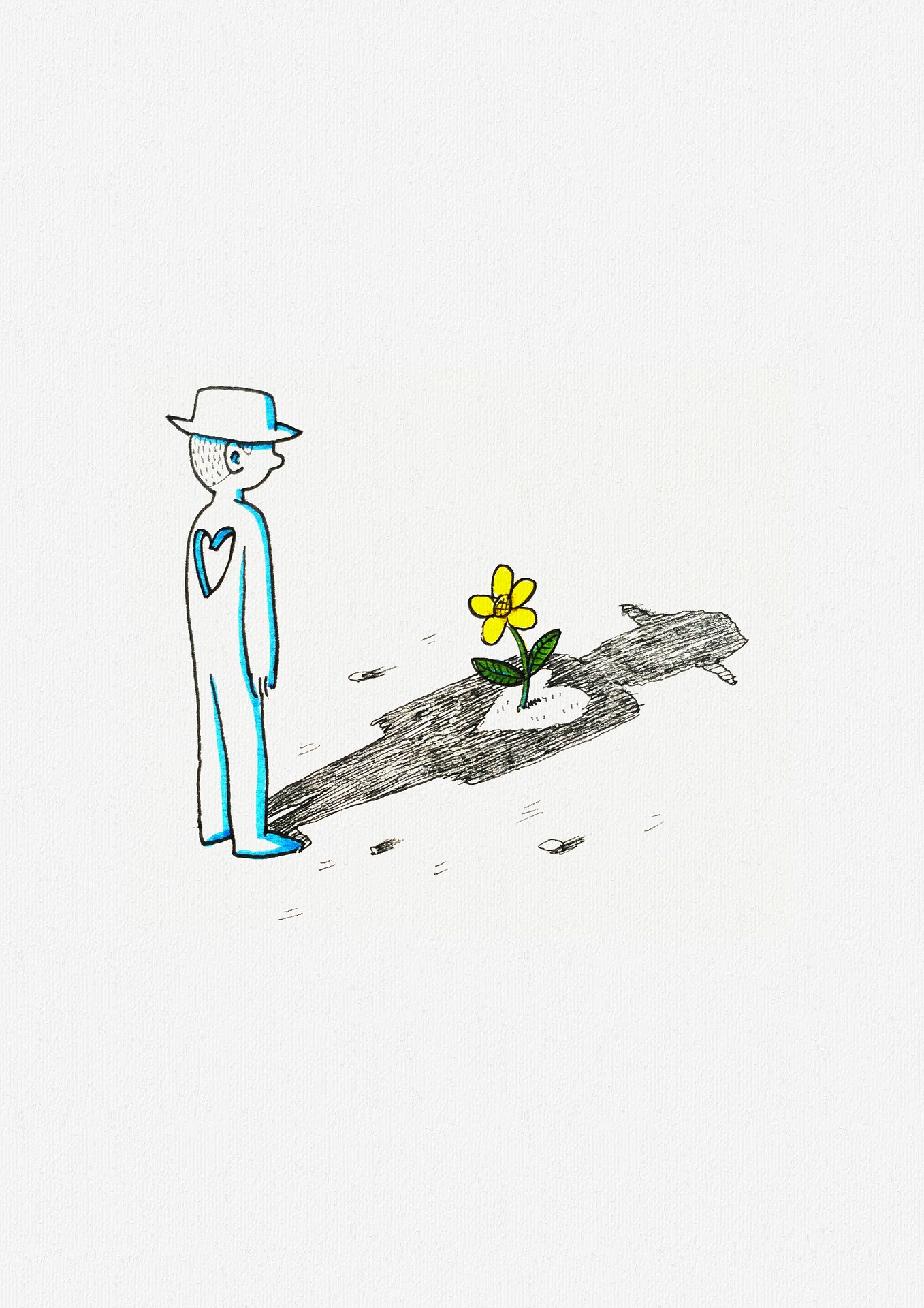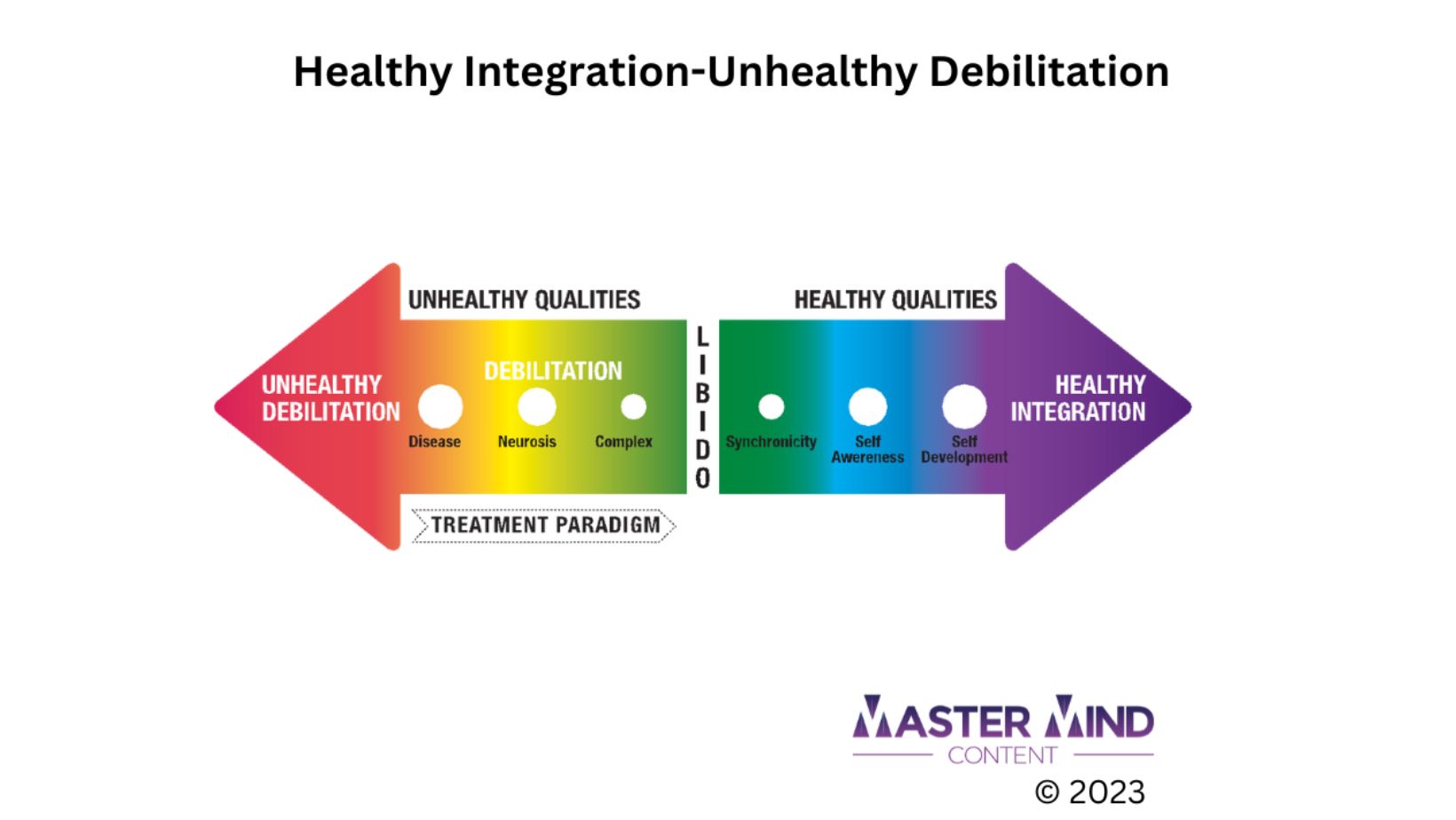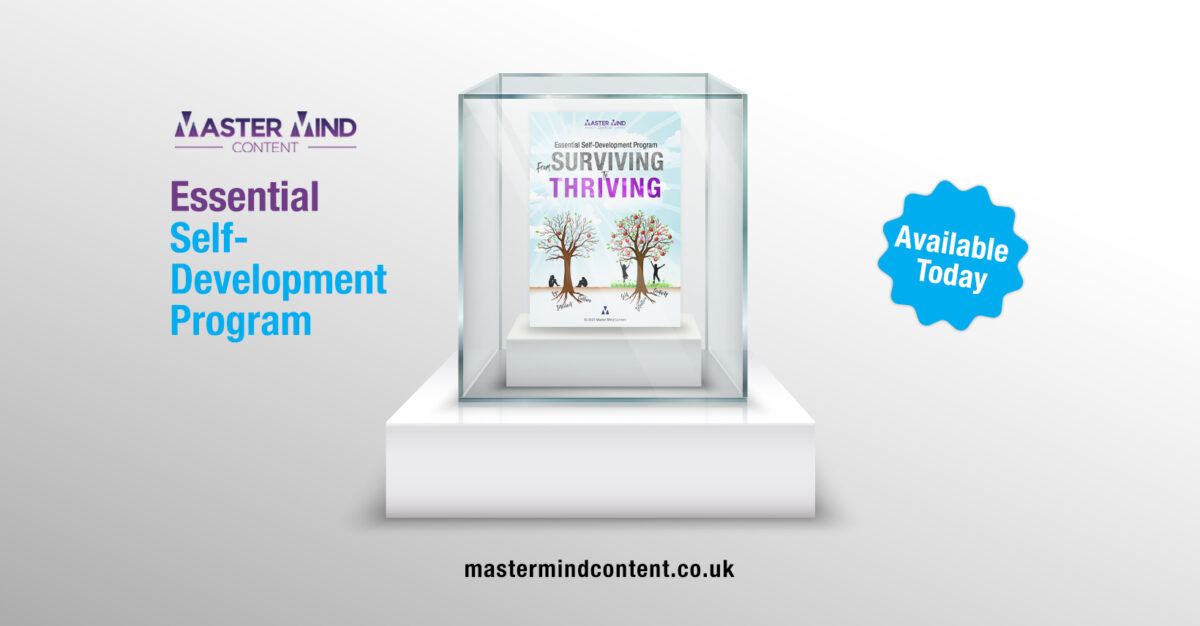
“Ever since Charles Darwin published his natural selection explanation for the origins of the great variety of life on Earth in 1859 all manner of theories have been put forward to suggest how one species, namely our species, managed to defy the essential selfish nature of the natural selection process and develop unconditionally selfless moral instincts.”
~ Jeremy Griffith, Freedom: The End of the Human Condition, p.219 para 388 (2015)
The principle of love indoctrination plays a huge role in developing meaningful relationships. It could also be pivotal to improving society and stopping the rot of toxicity.
Love indoctrination holds the key to our happiness, general well-being and positive mental health outcomes.
In theory, the widespread practice of love indoctrination could also provide the answer to creating less toxic societies. At the moment, humanity is being torn apart by opposing views, polarising agendas, geo-political conflicts, toxic social media platforms, cancel culture and hate crimes.
We are in desperate need of a solution that brings people together. The most likely solution for future generations is the principle of love indoctrination. What we can do right now is to learn about these principles and start integrating them into our lives to push back against the tide of fear.

In this article, I will attempt to explain what love indoctrination is and how it should theoretically work. At the moment, “Love indoctrination” is not a recognised or widely used term in academic or psychological literature and studies are in their infancy.
The first time I came across the phrase was in the groundbreaking book, Freedom: The End of the Human Condition, written by Jeremy Griffith. The Australian biologist calls for us to raise our children from a love-based centre.
Thought-Provoking Quote
“To deny the importance of nurturing is to deny the importance of the main activity we need to practice if we are to produce humans who are sound and secure in self. Indeed, it is only through the nurturing of our offspring that the human race can help to become healthy, psychosis-and-neurosis-free humans once again.
~ Jeremy Griffith, Freedom: The End of the Human Condition p.324, par 564 (2015)
Griffith points out the human condition today is largely, competitive, aggressive, neurotic, upset, ignorant and deluded. Ironically, academia and the mainstream media refuted the claims and Griffith had to present a case in front of the Supreme Court to get his work recognised.
The reactions of his critics proved the point he was making.
The increasing rates of depression, low self-esteem, lack of confidence and suicide also reflect that humanity is spiralling into a poor state of mental health.
So, what is going wrong?

Griffiths believes part of the problem is due to the misinformation that has been thrust from the halls of academia into the public domain. A lack of understanding about the human psyche has severed us from aspects of our personality and unconscious content is running riot!
Griffiths also believes the lack of love indoctrination in our child-rearing has contributed to generations of emotionally repressed individuals who struggle to build and maintain a positive self-image.
Love is widely regarded as the principle that connects us to healthy attachments. Healthy attachments underpin amiable environments and constructive outcomes.
The opposite of love is fear.
Fear binds us to unhealthy attachments and destructive behaviours such as substance abuse, verbal abuse and in some cases physical abuse.
When you watch the news, do you feel love or fear?
Indoctrination is the process of enrolling an individual into an ideology. Although “indoctrination” can be used for nefarious means in relation to political, social, economic and religious doctrines, in the hands of well-intentioned people, indoctrination can be an effective way to install effective strategies that nurture positive attitudes and sound mental health.
In the current paradigm, it’s clear to see that societies are being pulled apart. In truth, history shows us the world has always been this way. From the earliest writing to Julius Cesar’s famous ‘divide and conquer’ strategy, mankind has been competitive, aggressive and upset.
Griffiths points out that we came to be this way because our conscious mind challenged our instincts; the ego separated itself from the Self.
Thought-Provoking Quote
“The human condition emerged when our conscious mind challenged our instincts for the management of our lives, with the resulting psychologically upset competitive, aggressive and selfish condition being greatly exacerbated by the fact that our moral instincts are orientated to living in a way that is the complete opposite of the state, namely cooperatively, lovingly and selflessly.”
~ Jeremy Griffith, Freedom: The End of the Human Condition, p.93, par 151 (2015)
So why does the human race kill one another, harbour hate and antagonism, and engage in toxic debates? Aren’t we meant to be civilised and cultured?
It turns out that trying to be civilised and cultured is the root of the problem.
Jeremy Griffith believes that being “cultured” is not working out so well for us humans. The battle between instincts and intellect throws us out of balance and into emotional turmoil.
The Austrian psychoanalyst Sigmund Freud noted the same problem over 100 years ago. The father of depth psychology blamed civilised culture for cutting off the animal instincts in man and resigning “unacceptable” parts of our personality to the unconscious.
Thought-Provoking Quote
“The price we pay for our advance in civilization is a loss of happiness through the heightening of the sense of guilt.”
~ Sigmund Freud, Civilization and Its Discontents (1930)
(in James Strachey (ed.), The Standard Edition of the Complete Psychological Works of Sigmund Freud (1978), vol. 21)
Subsequently, the ego disassociates with split-off aspects of our conscious nature — archetypes project themselves onto the ego to serve as a coping mechanism. If the ego associates with the coping mechanism, it becomes part of your personality and habitual nature.

When archetypal energies project from the unconscious and take possession of the ego, your thoughts, actions and emotions are driven by an energy you may not have any control over.
Archetypes in the unconscious cannot be controlled and ultimately enslave the ego.
Thought-Provoking Quote
“I wanted to express the fact that one or other basic instinct, or complex of ideas, will invariably concentrate upon itself the greatest sum of psychic energy and thus force the ego into its service. As a rule the ego is drawn into this focus of energy so powerfully that it identifies with it and thinks it desires and needs nothing further. In this way a craze develops, a monomania or possession, an acute one-sidedness which most seriously imperils the psychic equilibrium….“A man thinks that he wills and chooses, and does not notice that he is already possessed, that his interest has become the master, arrogating all power to itself.”
~ Carl Jung, CW7 Two Essays on Analytical Psychology, p.111 (1928)
The Swiss psychoanalyst suggested that it is the splitting off of consciousness that separates the ego from the Self. Jung also postulated that “disunity with oneself is the hallmark of civilized man.” CW7, p.16
Moreover, this separation lays the foundation for neurosis and dis-ease.
Thought-Provoking Quote
“Neurosis is self-division. In most people the cause of the division is that the conscious mind wants to hang on to its moral ideal, while the unconscious strives after its—in the contemporary sense—unmoral ideal which the conscious mind tries to deny.”
~ Carl Jung, CW7 Two Essays on Analytical Psychology, p.18 (1928)
Throughout the centuries, philosophical reasoning determined that man is the most unhappy, restless and debilitated when there is a split in the Self-ego axis. When the ego separates from the Self, we become ego-driven and destined to go off the rails.
An inflated ego is the most basic stage of human development. It is guided by complexes and neuroses (archetypal energies) that prompt habitual behaviour. Some of these behaviours will be destructive. In this state of consciousness, individuals believe…
Thought-Provoking Quote
“… only I and my extensions (my family, my culture, my country, and so forth) have the primary validity. All others are contingent.”
~ Amit Goswami, The Self-Aware Universe. p.209 (1995)
Which brings us back to the civilisation of nations.
In trying to be civilised, we are making ourselves ill. By splitting off aspects of our True Nature, we lose connection with our innate qualities. Not only do we lack self-awareness of our destructive nature, but we ignore parts of our personality that would enrich our lives.
The more we repress parts of our nature, the more complexes we develop. The more complexes we develop, the more distorted our thinking becomes. And the more legacy media and politics play on our tribalism for “my family, my culture and my country,” the wounds of humanity will continue to be spliced open.

We then get into the realm of “Groupthink” a psychological phenomenon in which a group of people are influenced into conforming with a certain agenda.
Let’s take capitalism.
Capitalist culture is built on the promise of success and wealth. Sure that exists for a lot of people, but it’s built on a fragile foundation of competitiveness and competition which breeds aggression, corruption, dishonesty and unethical behaviour.
We also have to face the consequences for the billions that do not achieve wealth and success; low self-esteem, chronic anxiety, depression, and violence. The list of conditions goes on and it’s not a pretty list.
Notice how all the behaviours and conditions I mentioned are grounded in fear.
Fear is the opposing emotional state to love.
Thought-Provoking Quote
“Here is yet another important consideration for helping us to understand the individual in a group: Moreover, by the mere fact that he forms part of an organised group, a man descends several rungs in the ladder of civilisation. Isolated, he may be a cultivated individual; in a crowd, he is a barbarian— that is, a creature acting by instinct. He possesses the spontaneity, the violence, the ferocity, and also the enthusiasm and heroism of primitive beings. ‘ (p. 36.) He then dwells especially upon the lowering in intellectual ability which an individual experiences when he becomes merged in a group.”
~ Sigmund Freud, Group Psychology and the Analysis of the Ego (1921)
Jung agreed with Freud’s view adding that repressed consciousness “are transformed into something essentially baleful, destructive, and anarchical” and indirectly contributes to the moral degeneration of society.
Groupthink, this “collective psyche” that pulls people apart corrupts the morality of men because individuals have lost the capacity to think for themselves, rationalise and reason. They conform to fit in.
This happens when the Self-ego axis is severed. The ego becomes split off and individuals either have a poor self-image of themselves or they become so power-driven they only care for themselves.

Sadly, a so-called “civilised” culture remains in the infantile state of the collective psyche which opens individuals to manipulation.
Moreover, unless the ego is developed to a stage of maturity in which you can function successfully in the world, you will not achieve the success you desire.
This most basic state of conscious awareness makes people bitter, resentful, frustrated, angry, upset, violent, deluded and demented.
Thought-Provoking Quote
“Hence every man is, in a certain sense, unconsciously a worse man when he is in society than when acting alone; for he is carried by society and to that extent relieved of his individual responsibility.”
~ Carl Jung, CW7 Two Essays on Analytical Psychology, p.240 (1928)
In short, we should nurture our True Nature.
As mentioned above, love and fear are opposing forces. Fear manures the breeding ground of aggression, anger, frustration, restlessness, conformity, chronic anxiety, upset, denial, polarisation etc.
Love, on the other hand, promotes compassion, empathy, connectedness, support, gratitude, forgiveness, acceptance, happiness, fulfilment, harmony etc.
It is critical for the human race to operate from a love-based centre.
The only way to do that is to repair the fragmented personality that has been torn apart and buried in the unconscious. When you integrate more of the healthy archetypal qualities that are innate in human beings, you move towards sound mental and physical health and away from neuroticism and disease.

It is the archetypes appearing as complexes and neuroses that inform you which aspects of your personality are ready to be integrated. Unconscious content also emerges in symbolic imagery through dreams, and the synchronicity of symbols and events that reveal themselves to you to offer meaning.
With the Master Mind Content archetypes tool, underdeveloped archetypes are easy to identify. Understanding the archetypes will also help enhance your insight into other people and subsequently improve your relationships.
Once you are accustomed to the archetypes, use your knowledge to develop and deflate your personal ego but also to advise friends and family on how to overcome issues they encounter. If you have children, you can also use the archetypes tool to help guide them safely to psychological maturity.
If you don’t receive love as a child, or you perceive that you were not given the love and affection a child needs, the critical components to practice love indoctrination will not be programmed in your subconscious.

To program love into your subconscious, you may need to start with the Everyman archetype and learn to accept yourself first. Self-acceptance is the first step to self-love. Self-acceptance also includes accepting others for their views, race, preferences etc that are different from yours.
The second stage is to nurture self-love by practising self-compassion and self-respect. This also includes being compassionate and respectful to others. Start practising today by taking a look at these 12 Self-Love and Self-Compassion Strategies.
Given both the wounded Everyman and the wounded Caretaker have low self-esteem, thus nurturing is required. Building self-esteem is another stepping stone to self-love.
Learning new skills and competencies can help to build self-esteem. As Abraham Maslow points out in his pyramid of human needs, humans need to feel as though they belong to feel loved.
Joining a group of like-minded people to engage in crafts, sports or study is a fun and effective way of nurturing self-esteem and connecting with people.
Research in epigenetics also shows how repetitive actions become genetically programmed. We behave according to how we are genetically coded. Initially, we behave like our parents and ancestors but later in life become coded by the the environment, teachers, peers and the experiences we have in life.
Individuals with a fragmented personality are coded for survival.
Thought-Provoking Quote
“Genetic traits for nurturing are intrinsically selfish (which, as has been emphasised, genetic traits normally have to be if they are to survive) because through a mother’s nurturing and fostering of offspring who carry her genes her genetic traits for nurturing are selfishly ensuring their reproduction into the next generation. However, while nurturing is a genetically selfish trait, from an observer’s point of view it appears to be unconditionally selfless behaviour—the mother is giving her offspring food, warmth, shelter, support and protection for apparently nothing in return. Children come into the world instinctively expecting to receive unconditional love and when they don’t get it – receiving conditional love instead – they are so innocent, so trusting in a true, all-loving, upset-free world that the only conclusion they can come to for not being unconditionally loved is that for some reason they don’t deserve it and are therefore a worthless, unlovable, bad person.”
~ Jeremy Griffith, Freedom p.220, para 389 (2015)
Griffith goes on to note that from the infant’s perspective, it is receiving unconditional love. The perception of a child who is exposed to love indoctrination practices only experiences acts of selflessness from its parents and family members.
The infant’s central nervous system is programmed with unconditional selflessness.
Thought-Provoking Quote
“The love-indoctrination process states that…an infant brain is able to be inscribed or indoctrinated with unconditionally selfless love, thus allowing it to grow up to behave selflessly.
~ Jeremy Griffith, Freedom p.319, para 551, (2015)
Epigenetics shows us that genes significantly influence how we experience life. Whilst some genes are passed down from our ancestors, our cells are also altered by the environment — the information we absorb through the five senses.
The “in-formation” we process determines our personality, our choices and ultimately, how we experience life.
Thought-Provoking Quote
“Decades of research on twins, adoptees, and families have led to the inescapable conclusion that most reliably measured psychological characteristics are influenced to some degree by genes. Behavior also shows signs of genetic influence; the way one experiences stressful life events, for example, shows some genetic influence. Even personal aspects of individuals, such as spirituality and political ideology, are affected to an extent by genes.1 It should come as no surprise, then, that genes influence the ways in which families function and how family members relate to one another.2 Familial relationships of all kinds—parent-child, sibling, and spousal—can be shown to be at least partially the product of genetic factors.”
Thus the Caretaker is your lead archetype for nurturing the information you process. The Caretaker, which I identify with the goddess Demeter in the Master Mind Content archetypes tool, is the goddess of agriculture and is responsible for planting healthy seeds that nourish life.
To reap the rewards of your labour, the fruits of your desire need planting, nurturing and digesting. Here you see the agricultural theme of cultivating subconscious programs that develop into healthy attitudes, constructive behaviours and a wholesome way of being.
In contrast, the wounded Caretaker appears kind and considerate on the surface but lacks self-esteem. The motivation for being a people-pleaser is a search for validation in the form of attention, recognition and appreciation.
Because there is a condition attached to your motive, being a people-pleaser is considered a selfish act, not a selfless act. Selflessness is unconditional.
The capacity for selflessness is a quality of the Philanthropist which the Caretaker becomes when fully matured and integrated with the qualities of the Lover. The Philanthropist is one of the three highest states of human development.
Unconditional love and unconditional selflessness.
Thought-Provoking Quote
“So ‘love’ is corporative selflessness-it’s not just selfishness but unconditional selfishness, capacity, if called upon, to make a full, self-sacrifice and commitment to the maintenance of the larger whole.”
Jeremy Griffith, Freedom p.187, para 321, (2015)

